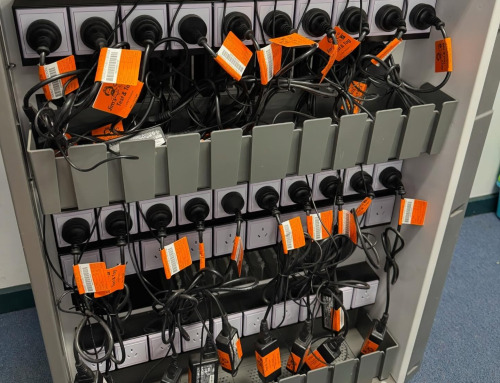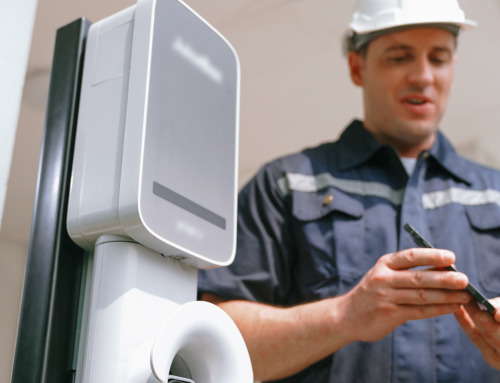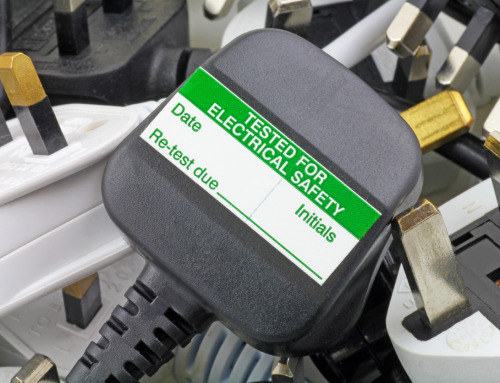New Zealand’s storm season brings heavy rain, strong winds, and extreme weather conditions that pose serious risks to outdoor electrical equipment. For businesses in construction, manufacturing, event planning, and hospitality, ensuring the safety and reliability of portable electrical tools is not just about compliance—it’s about protecting workers, preventing downtime, and avoiding costly damages.
Portable Appliance Testing (PAT) plays a critical role in identifying potential electrical hazards before they lead to failures, injuries, or regulatory issues. As storms become more frequent, businesses must prioritize regular testing of outdoor tools, extension cords, and portable appliances.
How Storm Season Affects Electrical Safety in Businesses
Weather conditions can significantly impact the performance and safety of outdoor electrical equipment. Here’s how:
- Water and Moisture Damage: Heavy rainfall and flooding increase the risk of short circuits and electrical fires. Tools stored improperly or left in wet conditions can become unsafe to use.
- Wind and Physical Impact: High winds can knock over appliances, damage power cords, or loosen electrical connections, creating safety hazards.
- Temperature and Humidity Effects: Fluctuations in temperature cause condensation inside electrical components, leading to corrosion and internal failures.
- UV and Environmental Wear: Long-term exposure to sunlight and harsh weather deteriorates cable insulation, making cords brittle and increasing the risk of electric shocks.
For businesses operating outdoors, Portable Appliance Testing is an essential preventative measure. By regularly testing and maintaining electrical equipment, companies can reduce risks and ensure compliance with workplace health and safety regulations.
Essential PAT Checks for Outdoor Equipment in Business Operations
Before storm season peaks, businesses should conduct Portable Appliance Testing to verify the safety of their equipment. Key areas to focus on include:
Power Tools and Heavy-Duty Equipment (Construction, Maintenance, and Industrial Use)
Power tools are the backbone of many industries, but their exposure to harsh conditions makes them vulnerable to electrical faults. Test and inspect:
- Corded power tools (drills, grinders, saws) for frayed or exposed wiring
- Loose or damaged plugs and connections
- Internal moisture damage in equipment stored outdoors
- Signs of overheating, burn marks, or irregular sounds during operation
Best Practice: Implement a scheduled PAT program for tools used on job sites to ensure compliance with WorkSafe NZ regulations.
Extension Cords and Power Distribution Boards (Events, Warehousing, and Construction Sites)
Outdoor extension cords are a major source of electrical failures during storm season. Ensure they meet safety standards by checking for:
- Cracks, splits, or water damage on insulation
- Secure, undamaged power board sockets
- Residual Current Devices (RCDs) for protection against faults
- Proper IP (Ingress Protection) ratings for outdoor use
Best Practice: For businesses in events or temporary setups, using weatherproof, commercial-grade extension cords with PAT certification can reduce risks.
Portable Appliances for Field Operations (Hospitality, Emergency Services, and Mobile Workforces)
Businesses using portable equipment—such as outdoor lighting, mobile refrigeration, and generators—must test:
- Corrosion and rust on electrical connectors
- Power cords for cuts, abrasions, or signs of deterioration
- Generator grounding and overload protection
- The functionality of all switches and emergency shut-off mechanisms
Best Practice: Schedule PAT testing before deploying portable equipment in high-risk environments to prevent malfunctions during peak business operations.
Why Portable Appliance Testing Matters for B2B Operations
For businesses that rely on electrical equipment in outdoor settings, PAT is more than a compliance requirement—it’s an investment in operational safety and efficiency. Benefits include:
- Reduced Downtime: Prevent unexpected equipment failures that can halt business operations.
- Workplace Safety Compliance: Meet WorkSafe NZ electrical safety standards and avoid penalties.
- Employee Protection: Ensure a safe working environment for teams handling electrical tools.
- Cost Savings: Extend the lifespan of expensive equipment by identifying issues early.
Final Steps: Preparing for Storm Season
To minimize risks during New Zealand’s storm season, businesses should:
- Conduct a full PAT inspection before peak weather months.
- Replace or repair damaged equipment before it becomes a hazard.
- Train employees on safe usage and storage of electrical tools in extreme weather.
- Use RCDs and surge protectors for additional protection.
How Jim’s Test & Tag Can Help Your New Zealand Business
Ensuring electrical safety during New Zealand’s storm season requires a proactive approach—especially for businesses that rely on outdoor equipment. While workplace safety is a shared responsibility, employers must take the lead in Portable Appliance Testing (PAT) to maintain compliance, protect employees, and prevent costly equipment failures.
At Jim’s Test & Tag, we specialize in PAT services tailored to industries that operate in challenging environments. Here’s how we can support your business:
- Reminder Service – Never miss a test. We provide reminders and ensure your equipment is regularly inspected and compliant with safety regulations.
- Data Management Service – We maintain up-to-date testing reports, making audits and workplace safety checks effortless.
- Repairing Faulty Items – If any appliances fail testing, we offer repair solutions or guidance to get them back in safe working condition quickly.
- Safe Work Method Statements (SWMS) – We assess the safety of outdoor tools, extension cords, and portable appliances before extreme weather hits, minimizing risks for your business.
Trust Jim’s Test & Tag to help keep your operations safe, compliant, and storm-ready.
Call us today at 0800 454 654 to learn more about our services or request a free quote via our online form.







